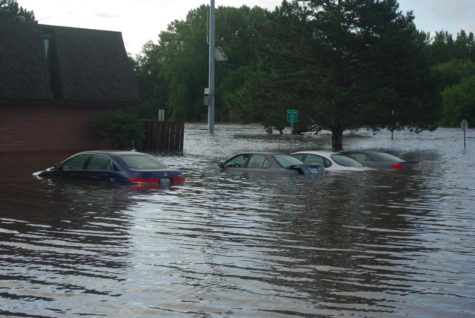Taking care of pets in the flood
August 13, 2010
Flood conditions are stressful for humans, but they can be equally dangerous for animals. Precautions should be taken to ensure pet safety during the boil order.
City water: As long as the city water is not safe for human consumption, it is also unsafe for animals. Pets should be given boiled or bottled water.
Standing water: Animals that have been exposed to floodwaters should visit a veterinarian for vaccinations, said Bianca Zaffarano, a clinician with Veterinary Clinical Services. Floodwater can carry leptospirosis, an infection that can affect nearly every organ system, as well as other bacteria and diseases. Pets should not be allowed to drink from puddles and other standing waters, or swim in floodwaters, as they can be overpowered.
Standing water can also pose risks for livestock and other large animals, such as horses, who become susceptible to skin and hoof conditions from fungus and infections.
Heat: Pets are “very susceptible to headstroke, overheating, and exhaustion,” Zaffarano said. Dogs should be taken on shortened walks, and small animals should be kept inside or cooled with ice packs and water during hot and humid conditions.
Mosquitos: Zaffarano said the water will increase the mosquito population, and that pets should be vaccinated against West Nile Virus. Mosquitos can also increase heartworms for dogs, cats and ferrets.
In case of more flooding: If possible, take your pets with you if you need to evacuate. If you need to leave animals behind, leave them unchained and outside so they can escape if necessary.











